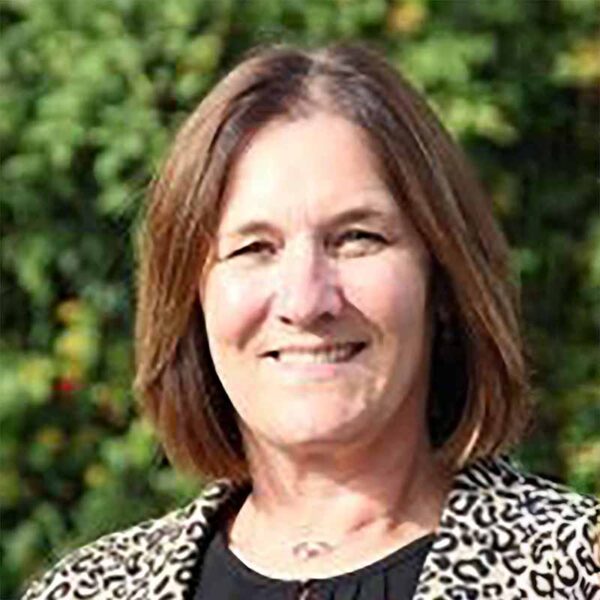

Faith sensitive and inclusive Relationships, Sex and Health Education
From September 2020, all primary schools were required to teach Relationships Education. They will also be required to teach Health Education. Secondary schools will be required to teach Relationships Education and Sex Education.
Read more on Faith sensitive and inclusive Relationships, Sex and Health Education
The legislation makes it clear that all schools should approach RSHE in a faith sensitive and inclusive way, seeking to explain fairly the tenets and varying interpretations of religious communities on matters of sex and relationships and teach these viewpoints with respect. The Church of England Education Office supports the approach taken by the government, including recommending an age-appropriate provision of sex education at primary level, and has issued a Charter which they hope schools of all foundations, faiths or otherwise will sign up to as they affirm the broad principles about how RSHE is taught.
The Charter is accompanied by guidance, given to help dioceses and schools as they develop policy in this area. Based in the principles established by the Church of England’s Pastoral Advisory Group which has set out some principles for living well together with difference and diversity and in Valuing All God’s Children, They have developed the following documents:
- Relationships and Sex Education Principles and Charter
- Suggested format for parents’ meetings with associated resources
- Suggested policy template
You can find these documents below and on the Church of England Website.
In addition, the Diocese of York has produced a more detailed policy template that can be found below.
Suggested policy template
.doc / 71 KB
RSHE Charter
.doc / 74 KB
RSHE Principles and Charter
PDF / 186 KB
RSHE – DoY RSE policy template Dec 2019
.doc / 78 KB
Resource A – suggested prayer for the meeting
PDF / 63 KB
Resource B – Diamond nine activity
PDF / 81 KB
Suggested format for parents meeting
PDF / 201 KB
Mental Health and Wellbeing: Towards a Whole School Approach
Nurturing the health and wellbeing of pupils is a key facet of holistic education for human flourishing as exemplified in the Church of England Vision for Education: Deeply Christian, Serving the Common Good. It should not be seen as a stand-alone item but as part of an embedded approach across the school’s ethos, linking with other aspects of health education, spiritual development, the wider school curriculum and the ethos and policies that underpin the school.
Read more on Mental Health and Wellbeing: Towards a Whole School Approach
This guidance from the Church of England Education Office aims to support Church of England schools to evaluate their current provision and to consider ways of embedding what they do in line with their Christian vision so that it becomes integrated into their school culture and ethos. It offers tools and resources which may complement or refine practices they are already engaged with. In addition, it offers schools a framework to prepare for this aspect of their Statutory Inspection of Anglican and Methodist Schools (SIAMS). It is meant to be a thought-provoking and useful document rather than a prescriptive document.
Mental Health & Well Being Guidance
PDF / 1 MB
Mental Health & Well Being – Policy Template
.doc / 83 KB
Bereavement Resources
A range of resources on grief and bereavement for schools and school leaders.
‘Any child old enough to love is old enough to grieve’
Wolfelt, 1996, p. ix
Read more on Bereavement Resources
Today’s children and young people have been described as ‘the world’s first ‘grief-free’ generation’ (Wolfelt, 1996, p. 8). Working with children and young people who are experiencing loss and grief is an enormous privilege and a responsibility. Whilst it is important that we take that responsibility seriously, we must also hold it lightly, accepting that it is not our job to ‘cure’ the child or the situation, and that there are no hard and fast rules.
What is key is that we allow ourselves to be guided by the child or young person who is grieving, the only expert in how they are feeling. Wolfelt uses the helpful metaphor of gardening – where a natural process of growth and change is protected and nurtured by those who care. He suggests that ‘grief gardeners’ know that grief is organic, complex but perfectly natural and necessary. As gardeners, we are called to watch and learn as well as to create conditions that allow our companion to mourn.
The process of accompanying a child or young person in their grief journey involves patience, courage and flexibility as they flit nimbly between moments of deep pain, times of fun and laughter, and philosophical depth and pragmatic realism as they explore their assumptions about life and its meaning and purpose.
Please find below a range of resources to help support schools and school leaders with grief and bereavement. There are a number of different resources – our own guidance documents; guidance from the Church of England and the NGA; and resources for external sources. These include materials from Prayer Spaces in Schools who have a whole range of different resources on their own website: www.prayerspacesinschools.com.
School Leadership Resources for Grief, Bereavement and Loss
PDF / 424 KB
Bereavement Guidance Diocese of York
PDF / 1 MB
Dealing with Loss
PDF / 276 KB
Advice, guidelines and resources
PDF / 465 KB
Empty Chair
PDF / 248 KB
Beads of Loss
PDF / 290 KB
School Website
Documents to support schools audit their school website and develop the school website to reflect their Christian vision and distinctiveness.
School Website Resource – Sept 18
PDF / 517 KB
Other Guidance Documents
Guidance documents on areas relating to church school distinctiveness.
Advisory note on Magic, Witchcraft & Halloween
PDF / 78 KB
Guidance note on Yoga
PDF / 254 KB
Archbishops’ Young Leaders Award
The Young Leaders Award is a fully resourced leadership and character education programme, designed by the Archbishops’ Youth Trust, to be delivered by teaching staff within the classroom. The Award has empowered over 120,000 pupils from 1,000 schools to learn and practise key leadership skills and character virtues and to transform their communities through social action. Available at KS1 to KS4/+16, the YLA has clear links to SMSC, British Values, PSHE, Character Education, Citizenship, RE and SIAMS.
For more information on the Young Leaders Award, visit The Archbishop of York Youth Trust’s website or email yla@abyyt.com.